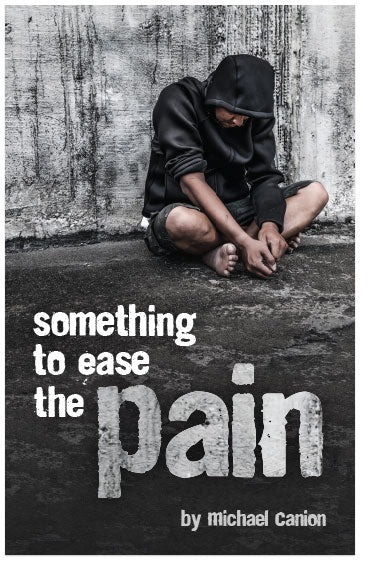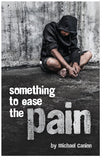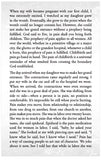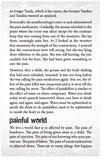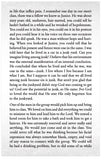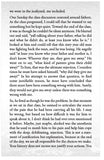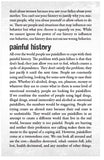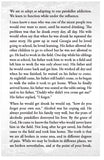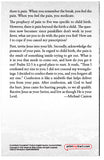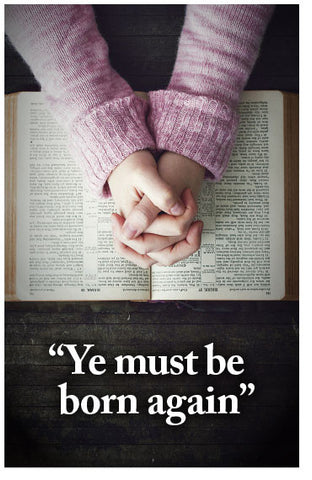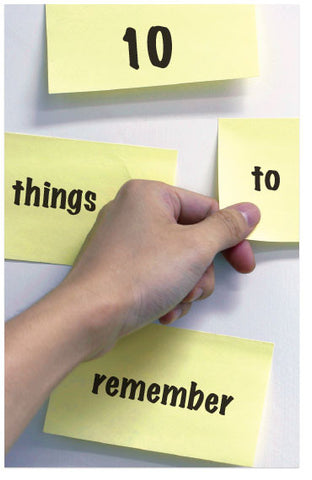Something to Ease the Pain
Special-Order Folded Tract
 NOTE: This item is custom-printed to order (click for more details).
NOTE: This item is custom-printed to order (click for more details).
This tract is from our print-on-demand library, and is not kept in stock. Select the options below, and we will custom-print a batch just for you. Because this item is custom-printed, you can add your custom imprint to the back page at no extra cost.
- Estimated shipping date: Thursday, January 1 (Click for more details)
- SKU:
- Discounts: Discount coupons do not apply to this item
- Format: Folded Tract
- Size: 3.5 inches x 5.5 inches
- Pages: 8
- Imprinting: Available with 5 lines of custom text
- Version: GNT
- Returns: Because this item is custom-printed to order, it cannot be returned.
Show all item details
The full text of this tract is shown below in the GNT version. (Do you want to print this tract in a different version than the one listed? Contact us and let us know what you're looking for—we may be able to create the alternate version for you at no charge.)
When my wife became pregnant with our first child, I was extremely excited. I watched as my daughter grew in the womb. Eventually, she grew to the point when the womb could no longer contain her. However, she could not make her grand entrance without a prophecy being fulfilled. God said to Eve, in pain shall you bring forth children. This prophesy of pain applies to all women. All over the world, whether in a primitive village or a major city, the ghetto or the grandest hospital, whenever a child is born, this prophecy of pain is fulfilled. Childbirth and pain go hand in hand. The pain of childbirth is a universal reminder of what resulted from crossing the boundary God established.
The day arrived when my daughter was to make her grand entrance. The contractions came regularly and strong. I put my wife in the car and off to the hospital we went. When we arrived, the contractions were even stronger and she was in a great deal of pain. She was shifting from side to side—when a person is in pain, no position is comfortable. It’s impossible be still when you’re hurting. Pain makes you move, from relationship to relationship, from one drug to another, from one church to another, pain makes you move. She was in labor over twenty hours. She was in so much pain that when the doctor asked her name, she said epidural. Epidural is the pain medication used for women in labor. I said, “baby, he asked your name.” She looked at me with piercing eyes and said, “I know what he said, but I know what I need.” Pain has a way of causing people to act out of character. We joke about it now, but I told her that while in labor she was no longer Tanda, which is her name, she became Tandira and Tandira wanted an epidural.
Eventually, the anesthesiologist came in and administered the pain medication. Gradually, the moans subsided to the point where the room was silent except for the constant beep that was coming from one of the monitors. She lay there, seemingly pain free. As I looked at the monitor that measured the strength of her contractions, I noticed that the contractions were still strong, but she was lying there oblivious to the pain. She was still hurting, she just couldn’t feel the hurt. She had been given something to ease the pain.
However, after a while, the groans and the body shifting that had once subsided, returned. It was not long before she was calling for pain medication again. You see, the effect of the pain killer was temporary and as it wore off she was calling for more. The effect of painkillers is similar to the effect of water on thirst: temporary. Water you drink today won’t quench tomorrow’s thirst; you have to drink again, and again, and again. Water must be replenished to pacify the thirst so do painkillers need to be replenished to numb the body to the pain.
Painful World
We live a world that is so affected by pain. The pain of loneliness. The pain of being given away as a child. The pain of rejection. The pain of not knowing who your parents are. The pain of failure. The pain of sexual molestation or physical abuse. There are so many things that happen in life that inflict pain. I remember one day in our men’s class, there was a fellow we knew as Junior. He was about sixty years old, unshaven, hair matted, you could tell he hadn’t bathed in a while and he wreaked of hopelessness. You could see it in his eyes, you could see it in his posture and you could hear it in his voice on those rare occasions that he did speak. He was a man without hope and hurting. When you looked at Junior, you could tell that he believed his present and future were one in the same. I was told later that he lived in a car in a junk yard. Can you imagine living among junk? I believe that his environment was the external manifestation of an internal conclusion. He concluded that where he lived and who he was, was one in the same—junk. I live where I live because I am what I am. But I suppose it can be said that we all lived among junk because sin is junk. But aren’t you glad that being in the junkyard didn’t stop God was coming to get us? God saw the potential in junk, so He came. For God so loved the world that He sent His only begotten Son to the junkyard.
One of the men in the group would pick him up and bring him to class. We loved on him and did everything we could to minister to him and lead him to the Lord. We rented a hotel room for him to take a bath and took him to get a haircut. He was extremely reserved and never really said anything. He would just come and sit in the class. You could never tell what he was thinking because his facial expression was always somewhat blank, empty, and void of any reason to connect with the group. We could tell he had a drinking problem, but so did some of us while we were in the junkyard, me included.
One Sunday the class discussion centered around fathers. As the class progressed, I could tell that he wanted to say something but he kept quiet. Toward the end of the class, it was as though he couldn’t be silent anymore. He blurted out and said, “yall talking about your father, what he did and what he didn’t do, at least you know who he is.” I looked at him and could tell that this sixty year old man was fighting back the tears, and he was losing. He angrily said “at least you know who your father and mother is, I don’t know. Whoever they are, they gave me away.” He went on to say, “what kind of parents gives their child away?” To him, that was the ultimate rejection. Countless times he must have asked himself, “why did they give me away?” In his attempt to answer that question, to find some justifiable reason, he must have concluded that there must have been something wrong with him. Surely, they would not give me away unless there was something wrong with me.
So, he lived as though he was the problem. In that moment as we sat in that class, he seemed to articulate the source of the pain that he had been carrying all his life. I may be wrong, but based on how difficult it was for him to speak about it, I don’t think he had ever even mentioned it before. Maybe, just maybe, alcohol was the anesthesia that he used to numb him to his pain and help him cope with the deep, debilitating, rejection. This is not a statement of justification but explanation, because at the end of the day, we are all responsible for the choices we make. Your history does not excuse nor justify your actions. You don’t abuse women because you saw your father abuse your mother. You can’t use your history to justify why you mistreat people, why you abuse yourself or allow others to do so. There are people and situations that may influence our behavior but what you choose is squarely on you. While we cannot ignore the power of our history to influence our behavior, our history does not excuse wrong behavior.
Painful History
All over the world people use painkillers to cope with their painful history. The problem with pain killers is that they don’t heal; they just allow you not to feel, which creates a cycle of dependence. They don’t satisfy the problem; they just pacify it until the next time. People are constantly using and losing, looking for some new thing to ease their pain. Whether it’s alcohol, drugs, sex, pleasure, money or whatever they use to create what to them is some level of emotional normalcy, people are looking for painkillers. If we combine the number of people using legal drugs, illegal drugs, sexual immorality and alcohol as emotional painkillers, the numbers would be staggering. People are trying create an altered state because their real state is so undesirable. They would rather use painkillers in an attempt to create a different world than live in the real world, because reality is too painful. People are hurting and neither their profession nor calling makes them immune to the appeal of a coping aid. However, painkillers come at a tremendous cost. We can look all around and see the cost—families destroyed, rehab centers full, jobs lost, health decimated, and any number of other things. We are so adept at adapting to our painkiller addiction. We learn to function while under the influence.
I once knew a man who was one of the nicest people you would ever want to meet, until he started drinking. The problem was that he drank every day, all day. His wife would often say that when he was drunk he repeated the same story. He grew up in rural Georgia and he loved going to school, he loved learning. His father allowed the other children to go to school but he was not allowed to go. He had to work in the field. One day while his siblings were at school, his father took him to work in a field and left him to work (he was only about ten). His father said he would come back and get him. He worked all day and when he was finished, he waited on his father to come. As nightfall came, his father still hadn’t come, so he began to walk the miles it took to get home. When he finally arrived home, his father was seated at the table eating. He said to his father, “Daddy why didn’t you come get me?” His father replied, “I forgot.”
When he would get drunk he would say, “how do you forget your own son.” Alcohol was his coping aid. He always provided for his family very well, but the years of alcoholic painkillers destroyed his liver. By the grace of God, He came to know the Father who would never leave him in the field. Not long after he got saved, his Father came to the field and took him home. The truth is that we are all broken in some area, and in different degrees of pain. While we may be broken in different places, we are broken nevertheless, and at the point of your break, there is pain. When you remember the break, you feel the pain. When you feel the pain, you medicate.
The prophecy of pain to Eve was specific to child birth. However, there is pain beyond the birth a child. The question now becomes: since painkillers don’t work in your favor, what are you to do with the pain you feel? How am I to cope if you cancel my prescription?
First, invite Jesus into your life. Secondly, acknowledge the presence of your pain. In regard to child birth, the pain is the result of something inside trying to get out. What is it in you that needs to come out, and how do you get it out? Psalm 32:5 is a good place to start. It reads, “Then I confessed my sins to you; I did not conceal my wrongdoings. I decided to confess them to you, and you forgave all my sins.” Confession is like a midwife that helps deliver you from your pain. After confession, ask God to heal the hurt. Jesus came for hurting people, so we all qualify. Receive Jesus as your Savior, and live as though He is your Lord. —Michael Canion

